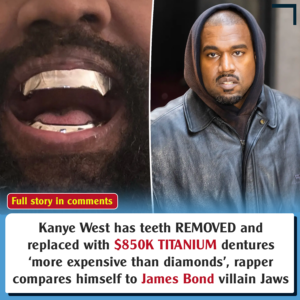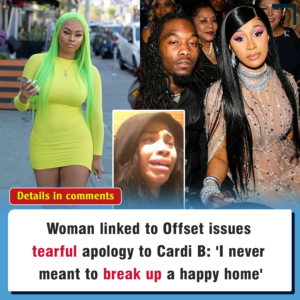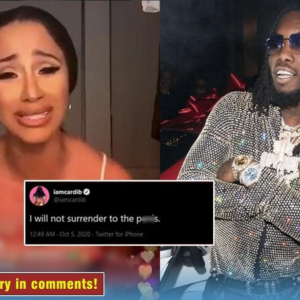Though Selena Gomez recently opened up about her bipolar disorder diagnosis, the star has long been candid about her mental health
:max_bytes(150000):strip_icc():focal(749x0:751x2):format(webp)/selena-gomez-1-2-2e090ebfac4d456ea76f3c9985e9c4d4.jpg)
PHOTO: SELENA GOMEZ INSTAGRAM
Selena Gomez recently revealed her bipolar disorder diagnosis — but it’s not the first time the star has spoken out about her mental health.
While on fellow Disney Channel alum Miley Cyrus’ Instagram show Bright Minded on Friday, the “Rare” singer, 27, opened up about discovering she was bipolar — a mental health condition that causes extreme mood swings that include emotional highs and lows — for the first time after years of struggling with her mental health.
“Recently, I went to one of the best mental hospitals in America, McLean Hospital, and I discussed that after years of going through a lot of different things, I realized that I was bipolar,” Gomez told Cyrus. “And so when I got to know more information, it actually helps me. It doesn’t scare me once I know it.”
On the show, Gomez and Cyrus, 27, also talked about how they’ve been keeping anxiety at bay amid the novel coronavirus, COVID-19, outbreak.
“I’ve been writing a lot. I think that that’s been helping me process what’s been going on,” Gomez said. “A lot of it is connecting with people that maybe you haven’t been the greatest to that you may not have thought about. I feel like there’s been a lot of people I’ve gotten to do that with not necessarily saying it was bad, but just saying, ‘Hey, I hope you’re safe. I hope you’re doing okay,’ and that you know you’re on my side. I’m only sending you love from this end.”
Later, Gomez said, “There are moments where I just have to center myself and let the thoughts come in. Sometimes I’ll write them down, and then completely just sit with, ‘What is it? What is the root of this? Why can I get to the bottom of this?’ And it really helps me.”
:max_bytes(150000):strip_icc():focal(423x0:425x2):format(webp)/selena-miley-1-3f6e15a0225640cdaf17a103a96c3346.jpg)
Miley Cyrus and Selena Gomez. INSTAGRAM
Gomez’s mental health journey dates as far back as 2013, when she took a break in the midst of her Stars Dance tour. She later revealed to Billboard that she underwent chemotherapy as treatment for her lupus (a long-term autoimmune disease) during that time.
In August 2016, Gomez announced she was stepping away from the spotlight to “focus on maintaining my health and happiness” after suffering from “anxiety, panic attacks and depression” as side effects of her lupus. Two months later, multiple sources confirmed Gomez wasseeking professional treatment to work on her emotional health.
While onstage at the 2016 American Music Awards— her first public appearance after her career break — Gomez got emotional while thanking her fans for their unwavering support.
“I think it’s safe to say that all of you know my life whether I like it or not. I had to stop because I had everything and I was absolutely broken inside,” she told the audience. “I kept it all together enough to where I would never let you down, but I kept it too much together to where I let myself down. If you are broken, you do not have to stay broken.”
In a March 2017 interview with Vogue, Gomez said she was “really lonely” while on tour.
“My self-esteem was shot,” she said. “I was depressed, anxious. I started to have panic attacks right before getting on stage, or right after leaving the stage. Basically I felt I wasn’t good enough, wasn’t capable. I felt I wasn’t giving my fans anything, and they could see it — which, I think, was a complete distortion. I was so used to performing for kids.”
In the summer of 2017, Gomez underwent a kidney transplant with an organ donated by her longtime friend Francia Raisa. Later that year, she opened up further about her career break in an interview with The Business of Fashion.
“I stopped and then I continued, because I realized that I needed to challenge myself,” she told the publication. “Do I really love this? Is this worth it anymore? I would look at my crowd on tour and think, ‘Yes, this is worth it, right?’ But then I would look at myself in the mirror and I just felt like, ‘I’ve had enough, I don’t know if I can go on anymore.’ And I stopped it for a second. But it didn’t mean that I didn’t love it, I just had to find what I was going to do with it. As long as I’m healthy and happy in my mind, I’m all about it.”
“If you’re around people who think that stuff is dumb, that think it’s ridiculous — ‘You’re crazy! You’re fine!’ — but you don’t feel that way, then maybe it’s time to reevaluate that,” she continued. “It’s a lonely journey to really figure out where all this stuff is coming from. And to detach from it. It becomes an addiction, it becomes a habit, retraining your mind to not go to these negative places when you say something wrong, do something wrong, when you wear a certain thing or represent a certain culture. But it is lonely, I had to lose a lot of people in my life to get there.”
In 2018, Gomez again sought treatment for anxiety and depression and completed a two-week program in New York City where she underwent therapy, ate healthy meals and took Pilates and meditation sessions.
“She felt like she needed to get away and focus on herself with no distractions,” a source close to Gomez told PEOPLE at the time. “She came back feeling very empowered.”
The following year, in 2019, Gomez reflected on the cost of childhood fame while on Coach’s Dream It Real podcast.
“My situation is different and very weird but when I was younger, I was exposed to all of this [fame],” she recalled of her years on Barney and Disney Channel’s Wizards of Waverly Place. “It was just all these pictures and all the things, and all I would do is look at the flaws … it is hard.”
:max_bytes(150000):strip_icc():focal(599x0:601x2):format(webp)/selena-0d4c12d87c564fae89ffd0037be1654d.jpg)
WILLY SANJUAN/INVISION/AP/SHUTTERSTOCK
On the podcast, Gomez said she’s a proponent of therapy and found it has helped her work through the aftereffects of being a child star.
“I am a believer of therapy … I wish I could have done a lot of things and experienced things maybe a little differently,” she said. “I go to therapy. It’s just one of the most important things — to get to know yourself. Not saying everyone in the world has to do it! But I do think that it’s helped me understand myself and my childhood a lot better.”
Gomez added that, over the course of her career, she’s become less and less concerned with her public image — mostly in an effort to protect herself from the pressures of Hollywood.
“There came a point in my life where I just started not to care,” she said. “You kind of create this other persona of yourself and then when I started going through real, really difficult things, it just allowed me to have worth, to know that I’m worthy and that I am who I am. And who is that? And do I like that person? I think that it’s important for me. I don’t want to be anything that’s a show or a persona. I just don’t.”
Earlier this year, Gomez revealed in WSJ. Magazine’s January cover story that she had “low self-esteem” and that it’s something she works on “continuously.”
“I feel so empowered because I’ve gained so much knowledge about what was going on mentally,” Gomez said. “My highs were really high, and my lows would take me out for weeks at a time.”
“I found out I do suffer from mental health issues. And, honestly, that was such a relief,” she continued. “I realized that there was a way to get help and to find people that you trust. I got on the right medication, and my life has been completely changed.”
Gomez — who released her third studio album, Rare, on Jan. 10— also said her new music reflects a return to her younger self.
“I remember Taylor [Swift] said when I played her some of the new songs, ‘I feel like I’m seeing who you were before this,’” she said. “That makes me happy. I like feeling like that girl again.”
:max_bytes(150000):strip_icc():focal(749x0:751x2):format(webp)/selena-gomez-1-98b52cdf9eb545f199e5da871f875e6e.jpg)
Selena Gomez. LACHLAN BAILEY FOR WSJ. MAGAZINE
That same month, Gomez spoke out about the emotional “abuse” she experienced during her on-again, off-again relationship with ex-boyfriend Justin Bieber in an interview with NPR’s Lulu Garcia-Navarro.
“I’m not being disrespectful, I do feel I was a victim to certain abuse,” she said. “I had to find a way to understand it as an adult. And I had to understand the choices I was making. As much as I definitely don’t want to spend the rest of my life talking about this, I am really proud that I can say I feel the strongest I’ve ever felt and I’ve found a way to just walk through it with as much grace as possible.”
In a February interview with Dazed, Gomez said that the challenges she’s faced in her life have only made her stronger.
“There are certain things, which I wish hadn’t happened to me,” she told the outlet. “But without them, I wouldn’t have been the voice I am for people who have gone through the same thing.”
“Going through the lupus thing and the kidney transplant, I was dealing with fame and with being run-down, dealing with depression, anxiety and other mental health issues that I had,” she added. “It was all a bit confusing.”
:max_bytes(150000):strip_icc():focal(539x0:541x2):format(webp)/79645468_2542553062690553_1204824781826703283_n-595d78ed4af54af5a09bfadd915d0514.jpg)
Selena Gomez. SELENA GOMEZ/INSTAGRAM
Gomez then sat down for a video interview with Genius in March, during which she said, “Self-esteem and confidence is a constant struggle for me.”
“It’s getting better with time and age but it will always be something that I’m working on,” she said. “I think recently this is the most I’ve been vocal about, actually I deserve this and I have a right to claim this and I have a right to put out things that I want to put out and talk about things that I want to talk about.”





